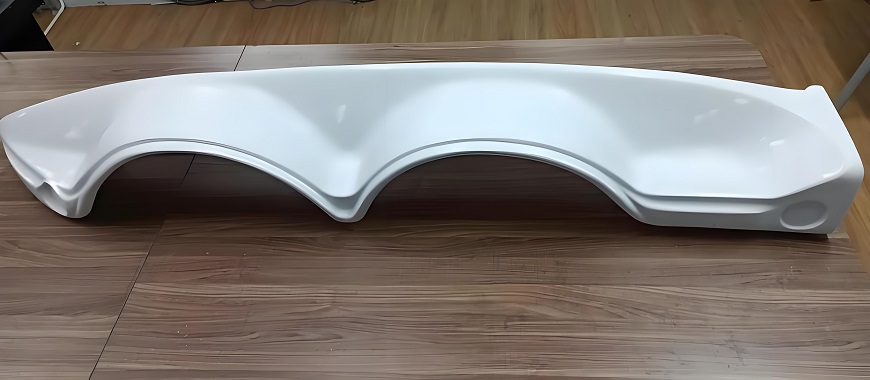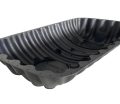
Deciding between deep v aluminum boats vs fiberglass is a crucial step for any boater. The choice impacts performance, durability, maintenance, and comfort in different water conditions. Each material offers unique features and benefits tailored to specific environments, making it essential to explore their strengths and limitations in depth.
Advantages and Limitations of Deep V Aluminum Boats
Deep v aluminum boats are renowned for their practicality and resilience, making them a preferred choice in rugged and shallow environments.
Advantages of Deep V Aluminum Boats
Deep v aluminum boats bring several standout qualities to the table, especially for users navigating challenging waters:
- Lightweight Design
Aluminum boats are significantly lighter than fiberglass alternatives, making them easier to transport, launch, and maneuver in various water conditions. - Exceptional Durability
The material’s natural strength allows aluminum boats to withstand impacts with rocks, logs, and debris, ensuring reliability even in the toughest environments. - Affordable and Cost-Effective
Aluminum boats are typically more affordable upfront. Their lower maintenance costs further add to their appeal, especially for budget-conscious users. - Shallow Water Capability
With a shallow draft, aluminum boats can access areas that deeper hulls cannot, making them ideal for exploring tight or obstacle-filled waterways. - Ease of Repair
Minor dents or scratches on aluminum boats can be quickly and inexpensively fixed, ensuring the vessel remains functional without extended downtime.
Limitations of Deep V Aluminum Boats
Despite their strengths, aluminum boats come with a few drawbacks:
- Noise Levels
The material tends to amplify vibrations and noise, which can be a disadvantage for activities like fishing that require a quieter approach. - Corrosion Risk in Saltwater
Without proper maintenance or protective coatings, aluminum boats are susceptible to corrosion in saltwater environments. - Utilitarian Aesthetic
Aluminum boats prioritize functionality over appearance, often lacking the sleek and polished look of fiberglass alternatives.
Advantages and Disadvantages of Deep V Fiberglass Boats
Deep v fiberglass boats are designed for those who value comfort, stability, and style. These boats excel in open and calm waters, offering unmatched performance in specific conditions.
Advantages of Deep V Fiberglass Boats
Fiberglass boats provide numerous benefits for boating enthusiasts:
- Stability in Rough Waters
The heavier construction and deep v hull design allow fiberglass boats to handle waves and choppy waters with superior stability. - Smoother and Quieter Ride
Fiberglass absorbs sound and minimizes vibrations, ensuring a comfortable and quiet experience on the water. - Enhanced Aesthetic Appeal
Fiberglass boats are sleek and modern in design, with customizable features that cater to both form and function. - Resistance to Corrosion
Unlike aluminum, fiberglass is naturally resistant to rust and corrosion, making it suitable for saltwater or brackish environments. - Fuel Efficiency at Higher Speeds
Once on plane, fiberglass boats often achieve better fuel efficiency due to their streamlined designs.
Disadvantages of Deep V Fiberglass Boats
Fiberglass boats also come with challenges that prospective owners should consider:
- Higher Cost
The initial investment for fiberglass boats is generally higher, and repairs or maintenance can be expensive. - Heavy Construction
The added weight of fiberglass can make these boats harder to tow, launch, and navigate in shallow waters. - Susceptibility to Impact Damage
Fiberglass is less resistant to direct impacts with rocks or obstacles, often resulting in costly hull repairs.
Making the Final Decision: Deep V Aluminum Boats vs Fiberglass
Selecting between deep v aluminum boats vs fiberglass comes down to evaluating your priorities and boating environment.
If you need a cost-effective, durable, and versatile boat for rugged waters, aluminum is the clear choice. For those who prioritize comfort, stability, and a quieter ride in calmer or open waters, fiberglass boats are the better option.
By carefully considering the factors outlined here, you can confidently choose the vessel that aligns with your needs and enhances your experience on the water.
Maintenance Insights for Deep V Aluminum Boats vs Fiberglass
Maintenance plays a crucial role in the long-term usability and cost-effectiveness of any boat.
Aluminum Boats
Aluminum boats are low-maintenance vessels. Regular cleaning and inspection for dents or scratches are usually sufficient. If used in saltwater, thorough rinsing and occasional application of anti-corrosion treatments are recommended.
Fiberglass Boats
Fiberglass boats require more attention to maintain their appearance and functionality. Regular waxing protects the gel coat, and cracks or chips should be repaired promptly to avoid further damage. Professional maintenance may be needed for extensive repairs.
Fishing and Recreational Use of Deep V Aluminum Boats vs Fiberglass
Fishing and recreational activities are among the most common uses for deep v aluminum boats and fiberglass boats.
Aluminum Boats for Fishing
Aluminum boats are ideal for fishing in rugged or shallow areas. Their lightweight design and impact resistance allow anglers to reach spots that might be inaccessible with heavier vessels.
Fiberglass Boats for Recreational Use
Fiberglass boats shine in recreational settings, offering a smoother and more luxurious experience. Their stability and quiet operation make them perfect for family outings, sightseeing, or long-distance travel.
Detailed Specs on Fiberglass Bass Boats for Sale: Key Features
Deep V Aluminum Boats vs Fiberglass: Finding the Right Match
Selecting between deep v aluminum boats vs fiberglass is an important decision for boaters seeking performance, durability, and comfort. Each material has unique properties that make it suitable for specific uses and water conditions. By understanding the strengths and weaknesses of both, you can choose the best option for your boating needs.
Deep V Aluminum Boats: Reliable and Versatile
Deep v aluminum boats are a go-to choice for those who prioritize durability and practicality in various water environments.
Lightweight and Durable
The lightweight design of aluminum boats ensures they are easy to transport and launch, even in less accessible locations. Despite being light, aluminum is incredibly durable, making these boats resistant to impacts from rocks, stumps, and debris often found in shallow or rugged waters.
Low Maintenance
Aluminum boats are known for their minimal maintenance requirements. Regular cleaning and basic care are usually sufficient to keep them in excellent condition. If exposed to saltwater, rinsing the boat thoroughly can help prevent corrosion.
Affordability
The cost-effectiveness of aluminum boats extends beyond their purchase price. Their durability and ease of repair reduce long-term expenses, making them a practical choice for budget-conscious boaters.
Suitable for Shallow Waters
With a shallow draft, aluminum boats excel in areas where navigating tight or obstacle-filled spaces is necessary. This makes them a preferred option for fishing, exploring, or operating in rivers and lakes with variable depths.
Drawbacks of Aluminum Boats
While aluminum boats are practical, they can be noisier than fiberglass options. This may be a disadvantage for activities like fishing, where silence is critical. Additionally, their utilitarian design may not appeal to those seeking aesthetically refined vessels.
Deep V Fiberglass Boats: Comfortable and Stylish
Deep v fiberglass boats are ideal for boaters who value comfort, stability, and style.
Superior Ride Quality
Fiberglass boats are heavier than aluminum, which contributes to their stability in rough waters. The deep v hull design allows them to cut through waves smoothly, providing a comfortable ride for passengers even in challenging conditions.
Noise Reduction
One of the standout features of fiberglass boats is their ability to absorb vibrations and noise. This creates a quieter experience, making them perfect for activities like fishing or leisurely cruises.
Sleek Aesthetic Appeal
Fiberglass boats are known for their polished finishes and modern designs. They are highly customizable, allowing owners to add storage compartments, seating arrangements, or advanced features to enhance functionality and appearance.
Corrosion Resistance
Fiberglass is naturally resistant to corrosion, making these boats an excellent choice for saltwater and brackish environments. This resistance reduces the need for additional treatments, saving time and effort.
Limitations of Fiberglass Boats
The weight of fiberglass boats can make them harder to maneuver, especially in shallow waters. They are also more expensive to purchase and repair, with professional maintenance often required for cracks or hull damage.
Essential Thinhs to Check When Buying A Fiberglass Bass Boat
Performance of Deep V Aluminum Boats vs Fiberglass in Rough Waters
Both deep v aluminum boats and fiberglass boats are designed to perform well in rough waters, but their performance depends on the conditions and intended use.
Aluminum boats are more agile and durable in shallow or rocky environments, where their lightweight and impact resistance shine. Fiberglass boats, however, excel in open or rough waters due to their stability and ability to minimize wave impact, providing a smoother ride for passengers.
Making the Right Choice
The choice between deep v aluminum boats vs fiberglass ultimately depends on your priorities. Aluminum boats are ideal for rugged environments and budget-conscious buyers, while fiberglass boats cater to those seeking comfort, aesthetics, and a quieter ride. Evaluating your needs and water conditions will help determine which vessel is the best fit for your adventures.
Finding the Toughest Fiberglass Bass Boat for Sale in 2024
FAQs about Deep V Aluminum Boats Vs Fiberglass
Choosing between aluminum or fiberglass for a boat depends on your specific needs and the environment in which you’ll be using the boat. Aluminum boats are lighter, more durable, and easier to repair, especially when navigating rocky or shallow waters. They are also more affordable upfront and require less maintenance. However, they can be noisier and less stable in rough waters compared to fiberglass boats. Fiberglass boats, on the other hand, provide a smoother ride, especially in calm waters. They are known for their sleek appearance and stability in open water, making them ideal for cruising and water sports. However, fiberglass is more prone to cracking, and repairs can be costly. Ultimately, the decision comes down to your priorities—if you need durability and low maintenance, an aluminum boat may be a better choice. For comfort and performance in calm waters, a fiberglass boat could be more suitable.
A deep V boat design offers several advantages, particularly in rough water conditions. The hull of a deep V boat is characterized by a sharp V shape at the bow, which allows it to cut through waves more easily, providing a smoother ride in choppy or turbulent waters. This design helps reduce the impact of waves, minimizing the jarring effect on the boat and its occupants. As a result, deep V boats are ideal for offshore boating, fishing, and navigating in open waters where waves are more common. They also provide more stability and better handling at higher speeds, making them suitable for a variety of water activities, including wakeboarding and waterskiing. Additionally, deep V boats tend to have better seakeeping abilities, meaning they are less affected by wind and wave conditions. While they may be less efficient in shallow water or at lower speeds, their performance in rough conditions makes them a popular choice for serious boaters.
While aluminum boats offer numerous advantages, such as being lightweight, durable, and easy to repair, there are some downsides to consider. One of the main disadvantages is the noise factor—aluminum boats can be much noisier than fiberglass boats, especially in choppy waters. The metal construction amplifies sound, which can be a problem if you’re trying to fish or enjoy a quieter, more relaxing ride. Another downside is that aluminum boats are more susceptible to corrosion, especially in saltwater environments. While the material naturally forms a protective oxide layer, regular maintenance is needed to prevent long-term damage. Aluminum boats also tend to have a rougher, less smooth ride compared to fiberglass boats, particularly in rough waters. Finally, although they are relatively easy to repair, major damage can still be costly and sometimes difficult to fix without specialized tools or expertise. Despite these drawbacks, aluminum boats remain a popular choice due to their affordability and durability.

As the editor of GangLong Fiberglass, I have years of experience and in-depth research, focusing on cable tray products, fiberglass solutions, and grille systems. I incorporate years of industry insights and practical experience into every content, committed to promoting the progress of the industry. At GangLong Fiberglass, my commitment is reflected in every product, from innovative cable trays to durable fiberglass solutions and sturdy grille systems. As an authoritative voice in the industry, my goal is to provide valuable information to professionals and businesses and promote forward-looking solutions.

